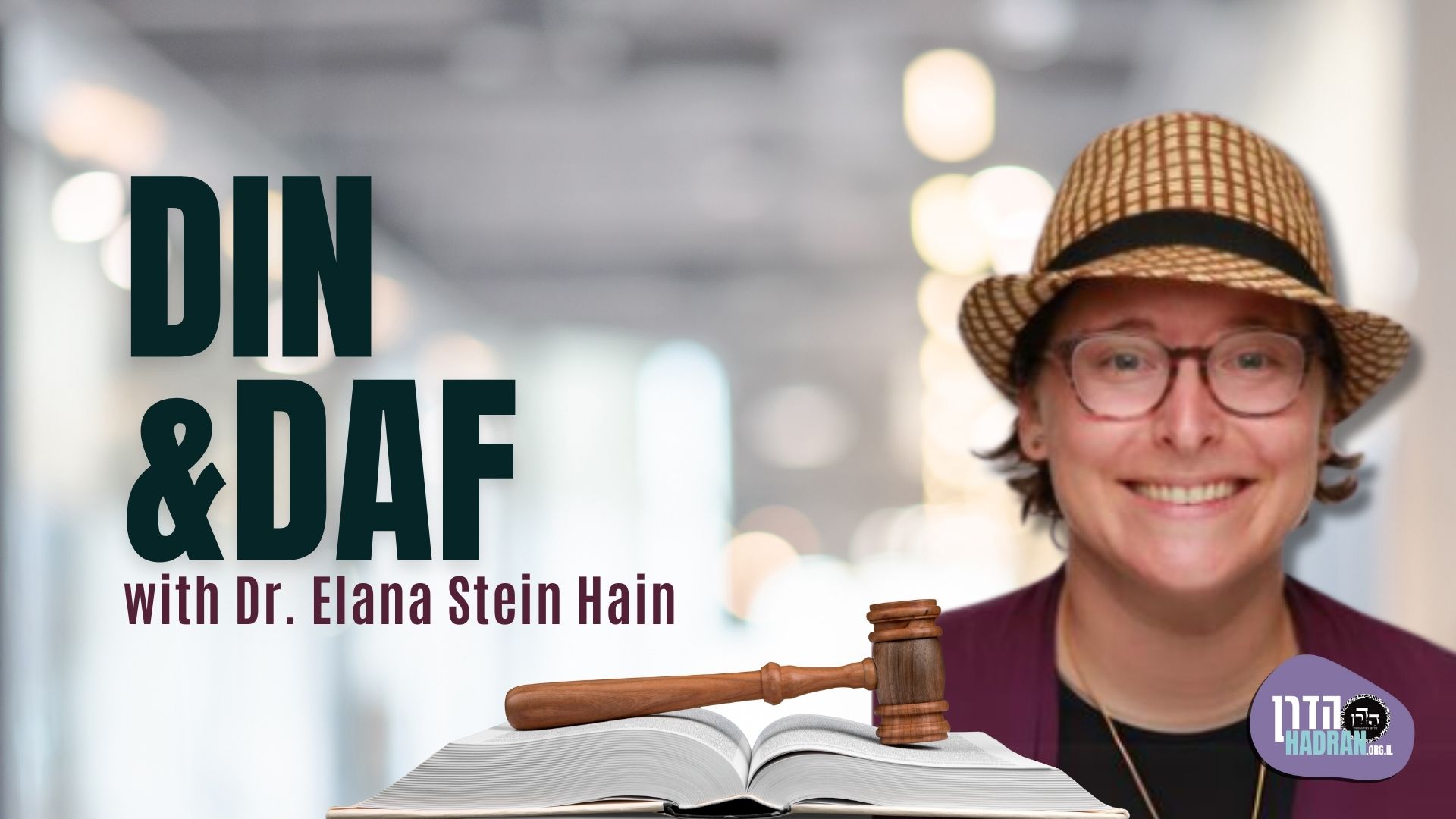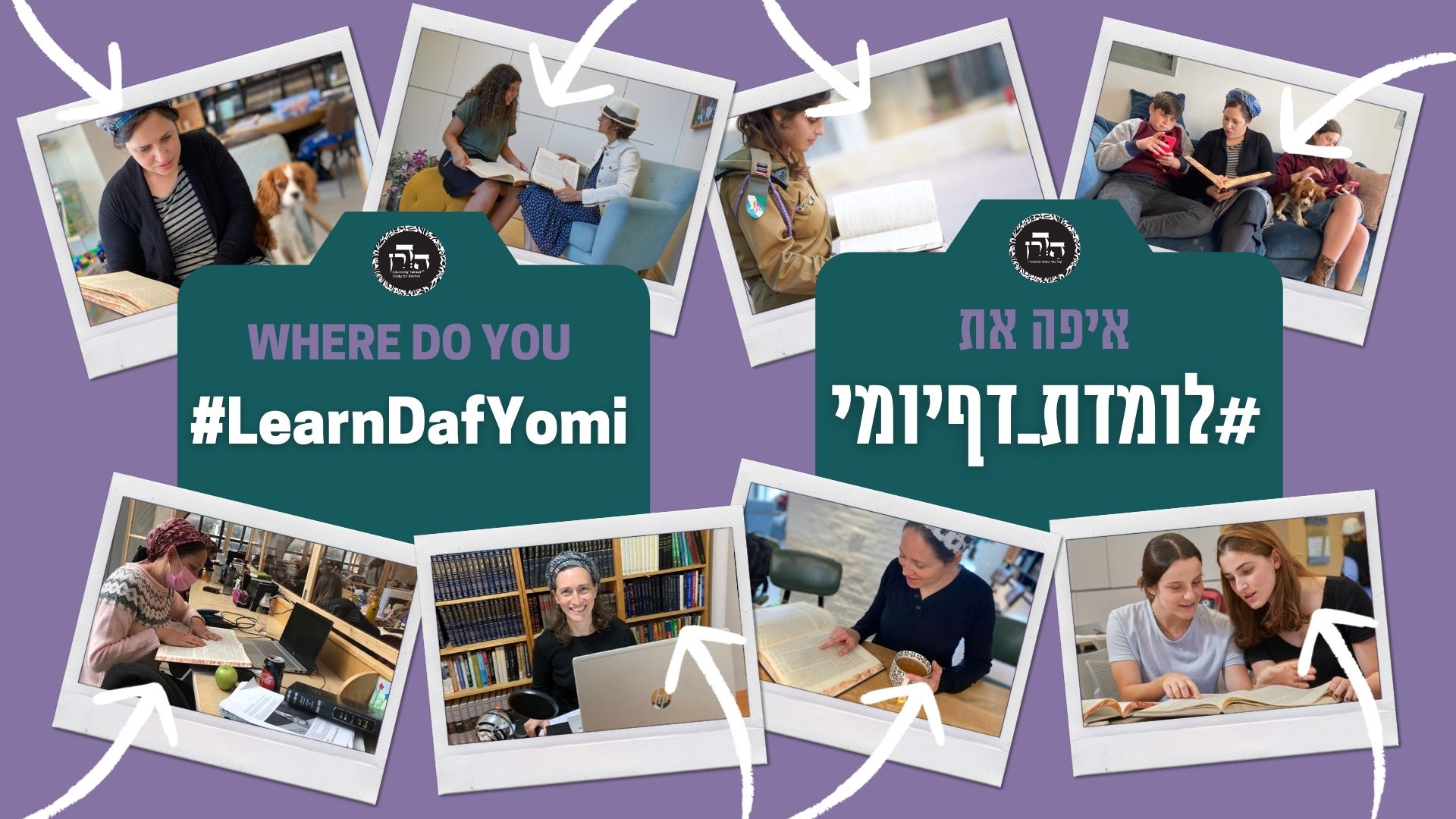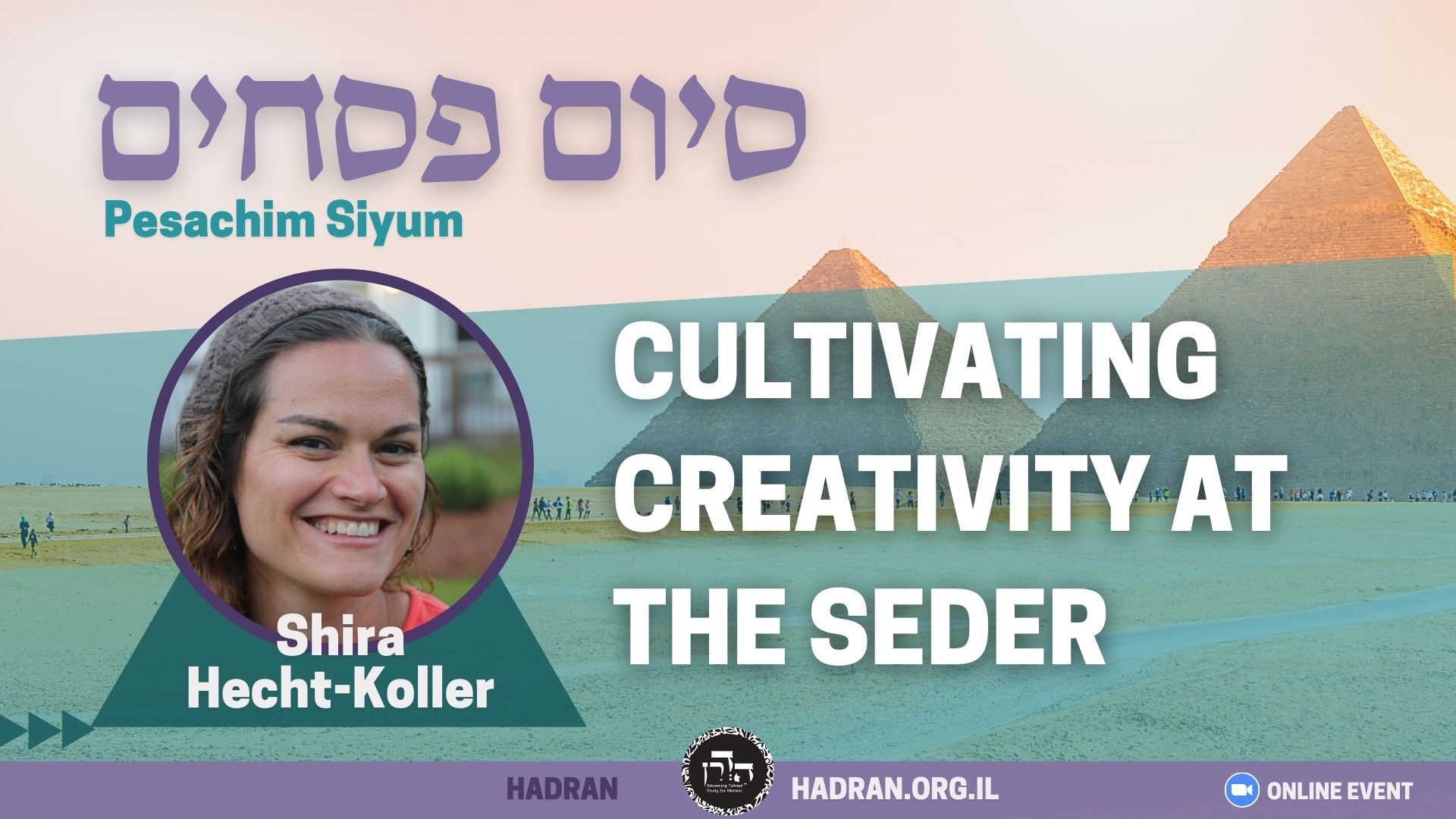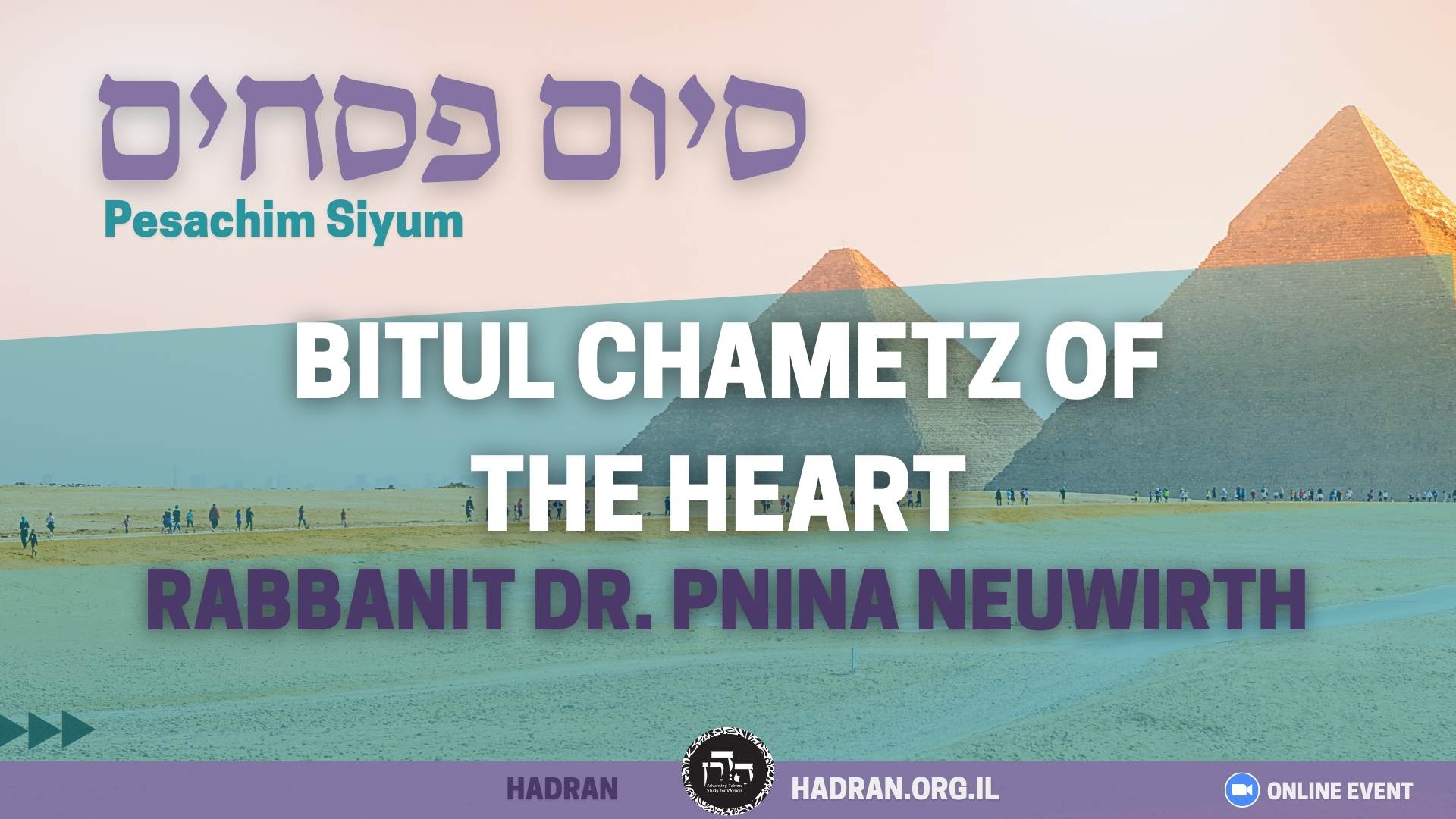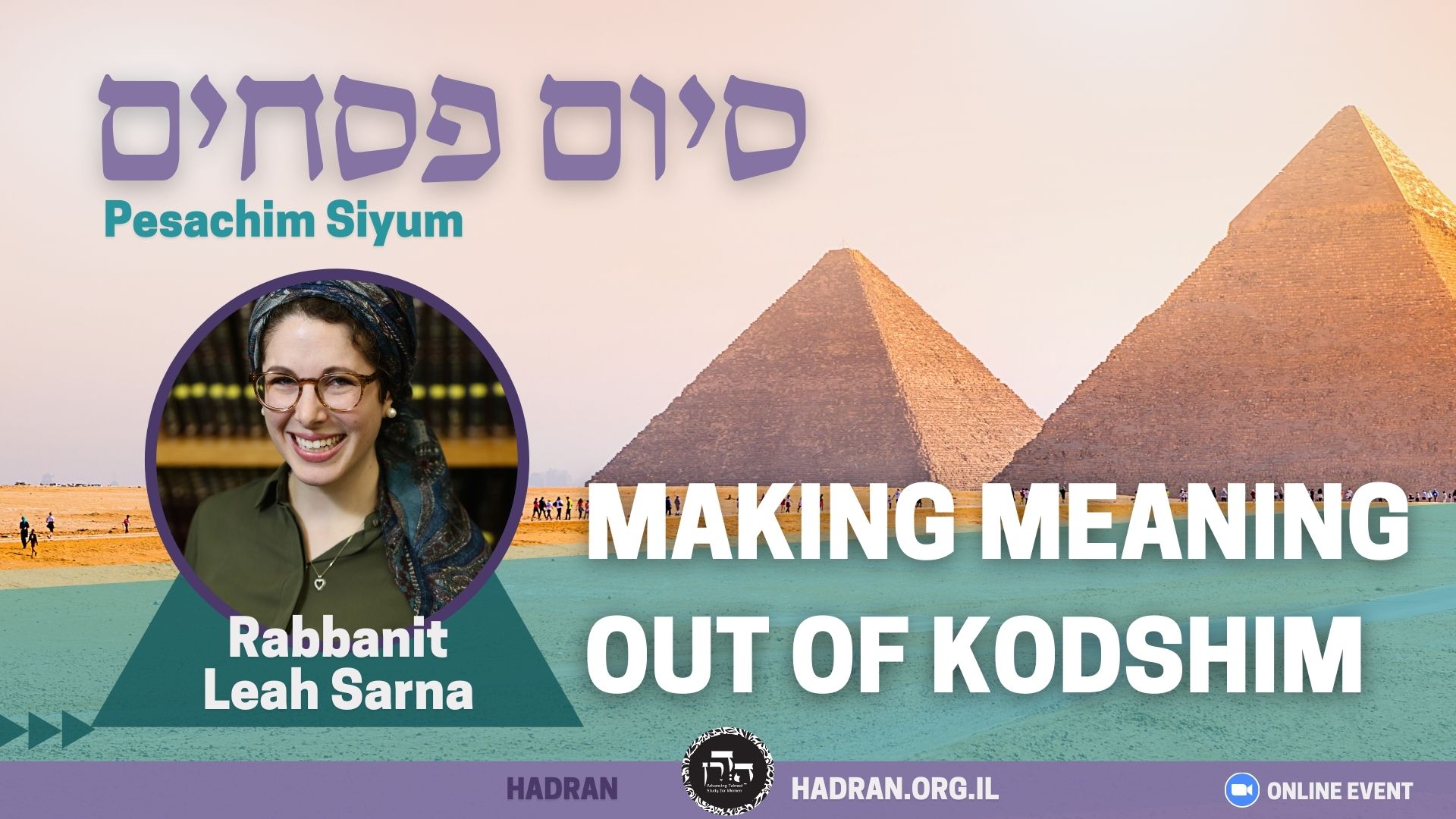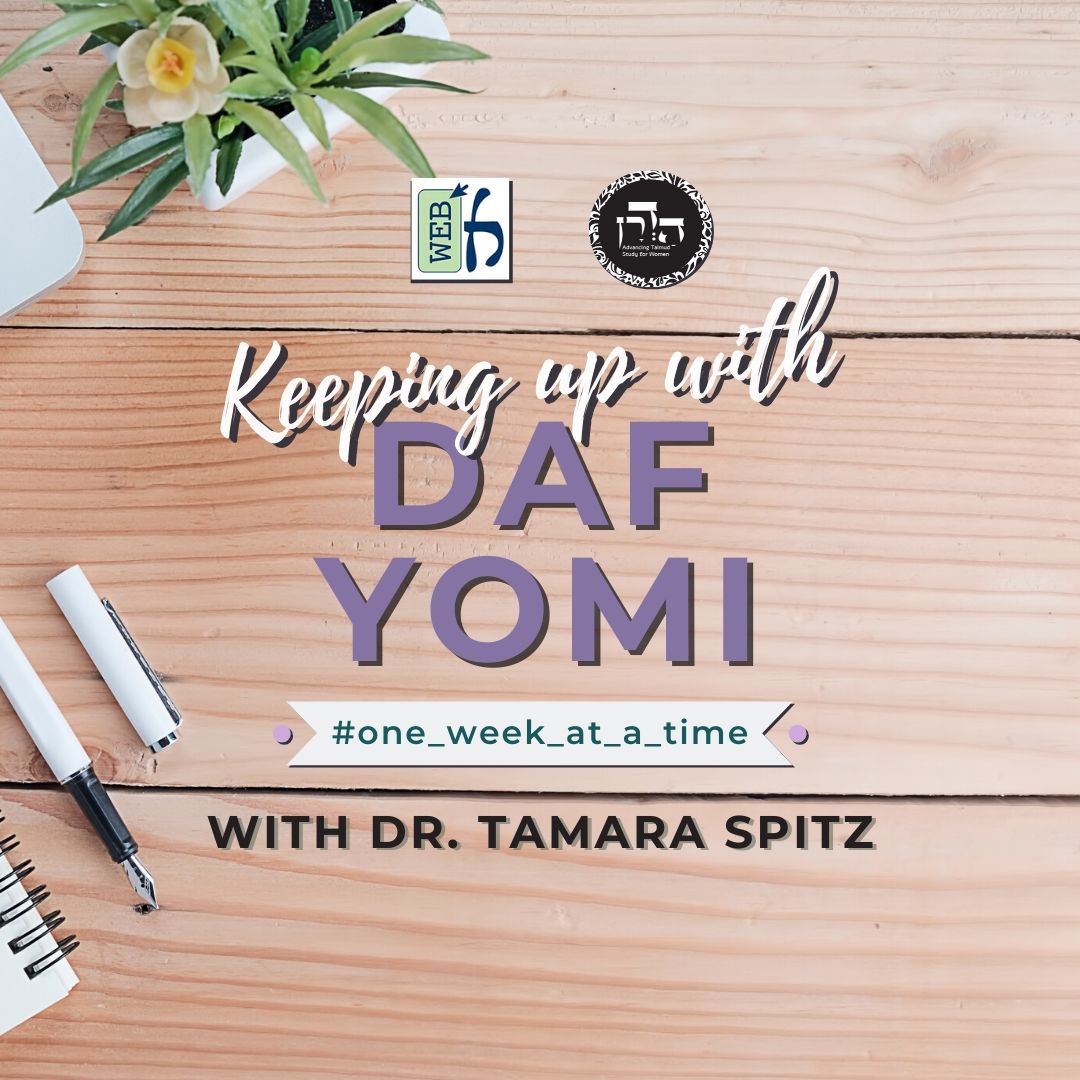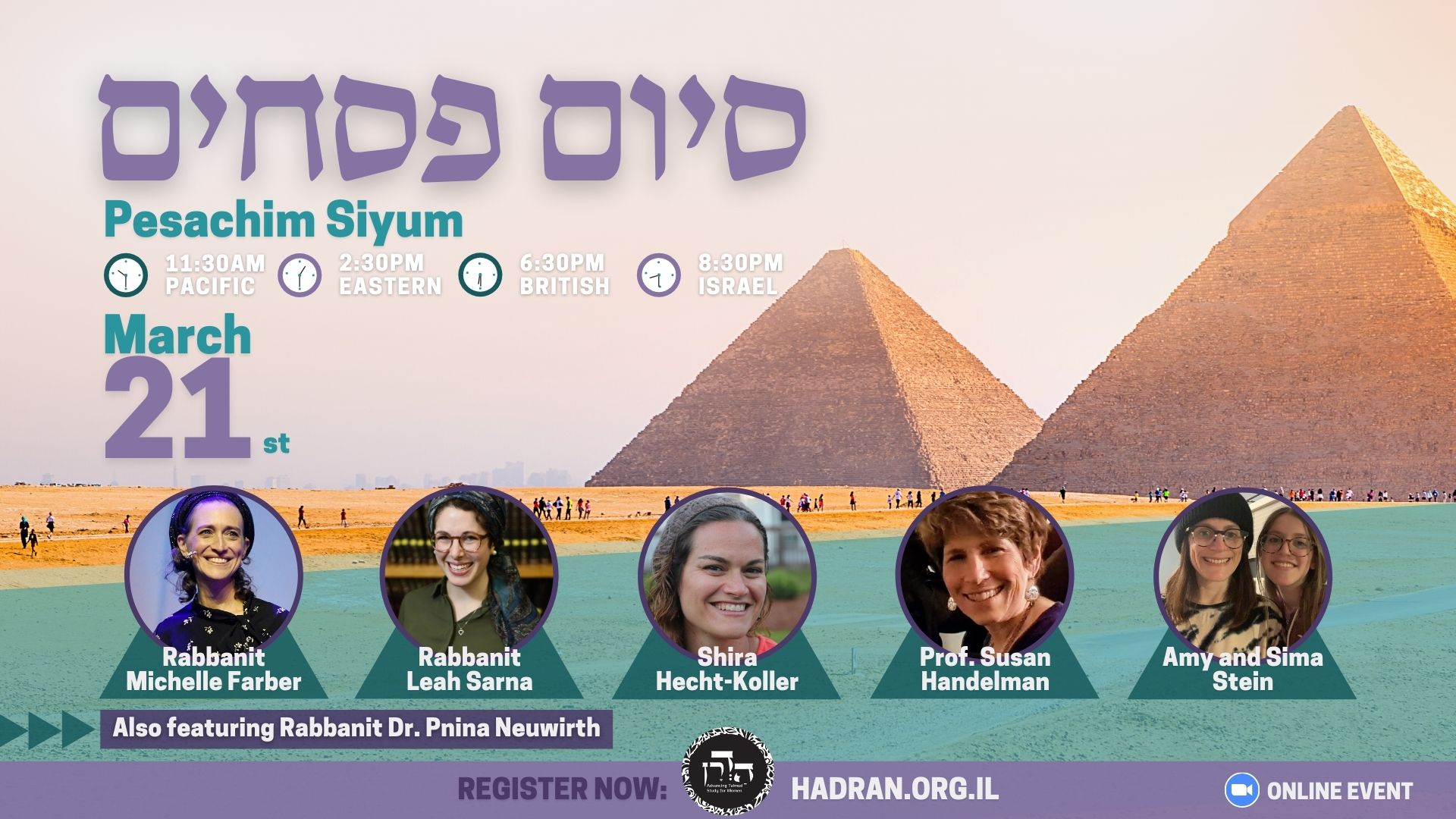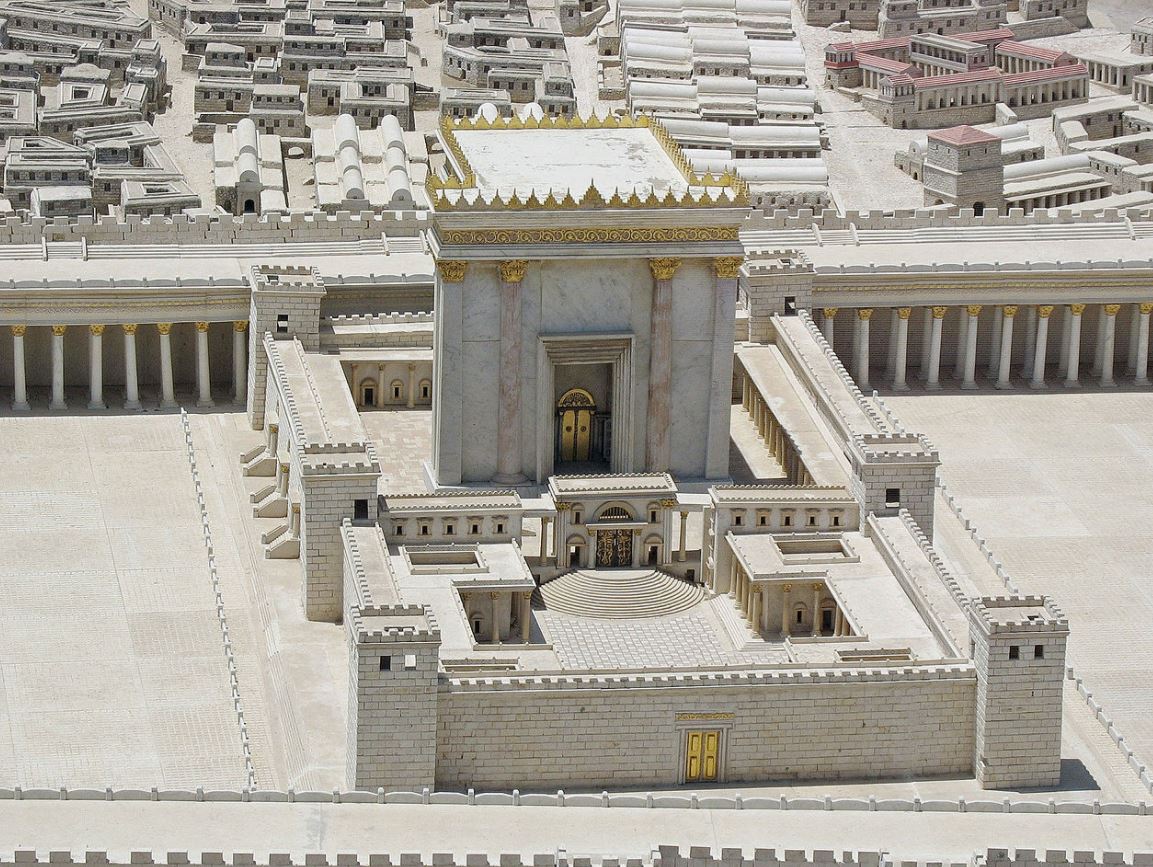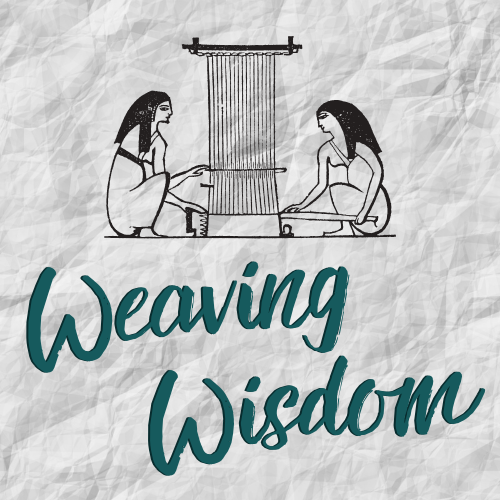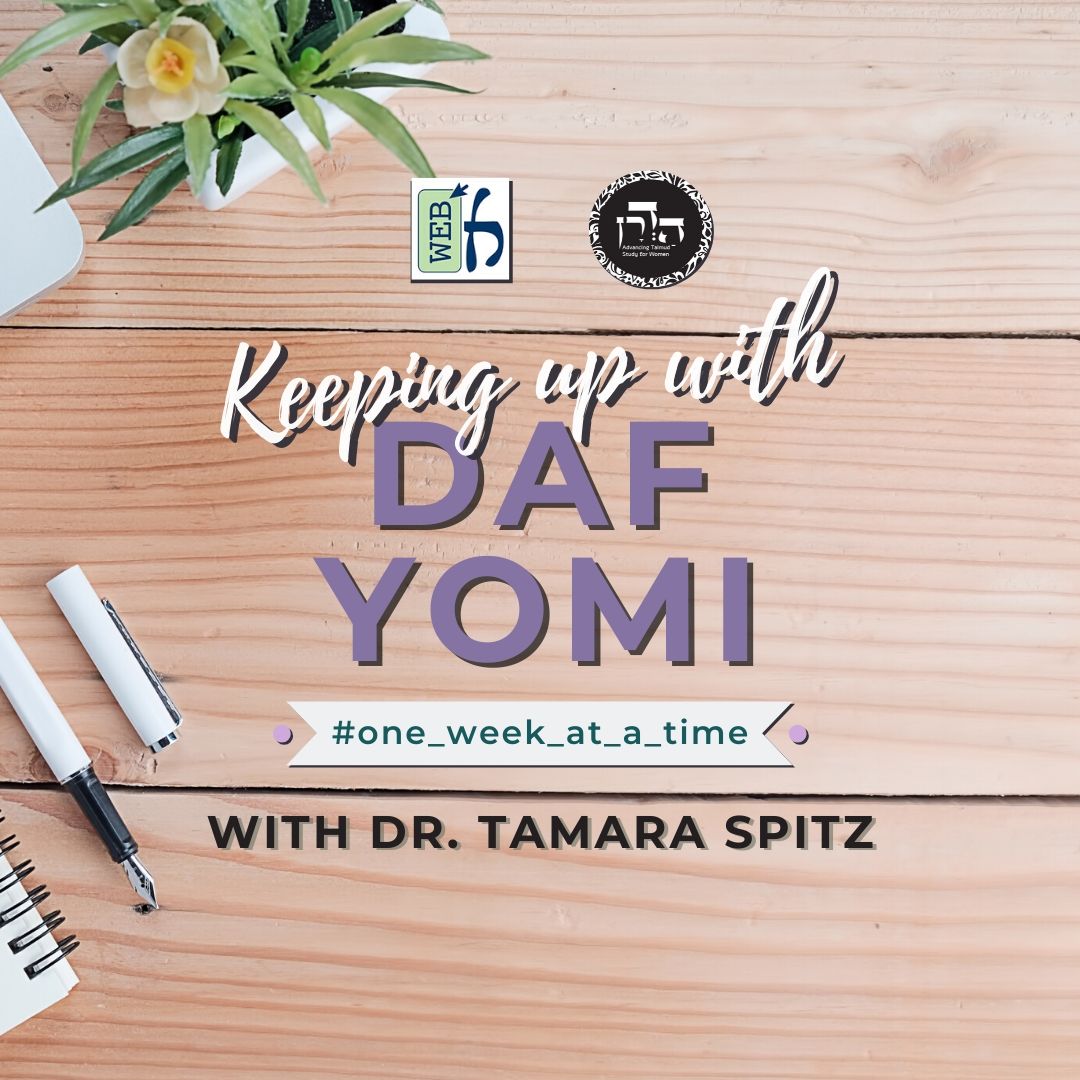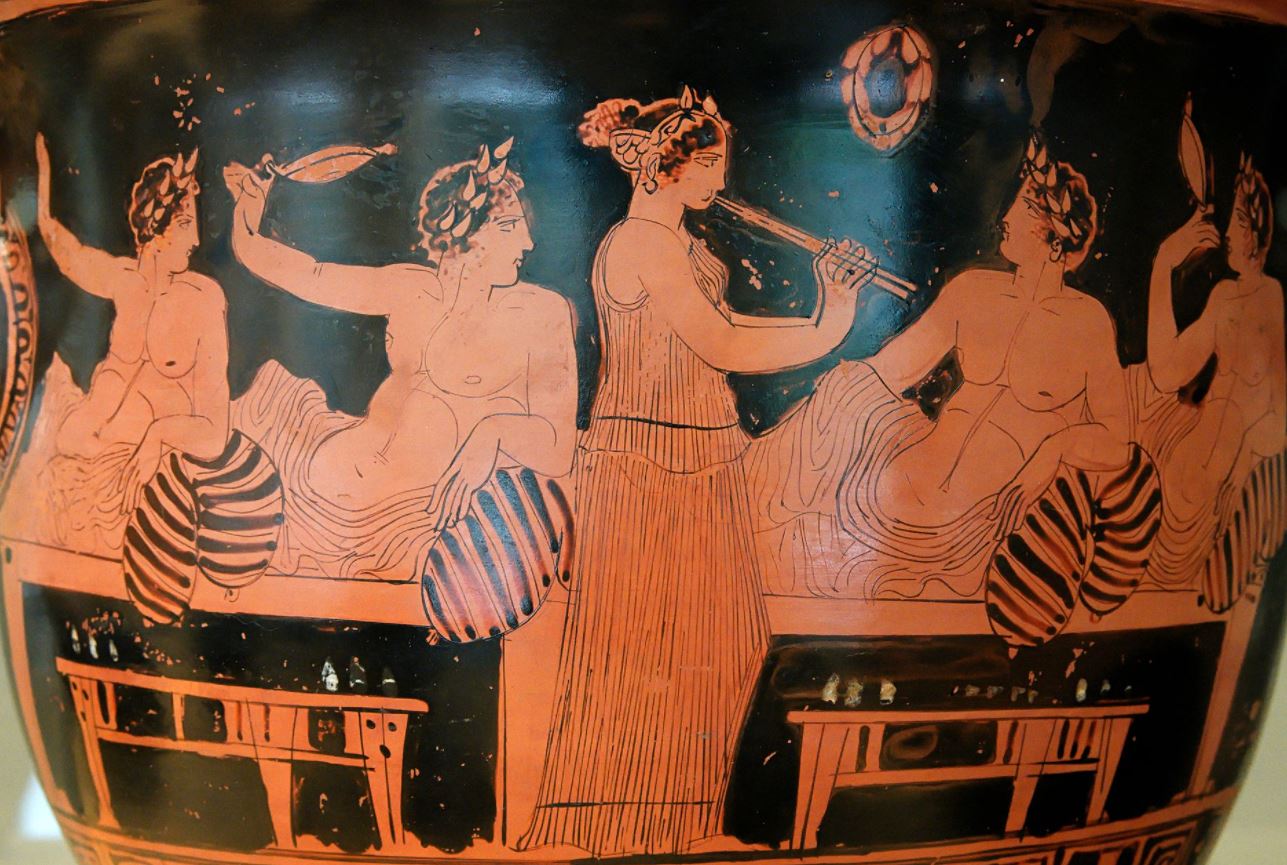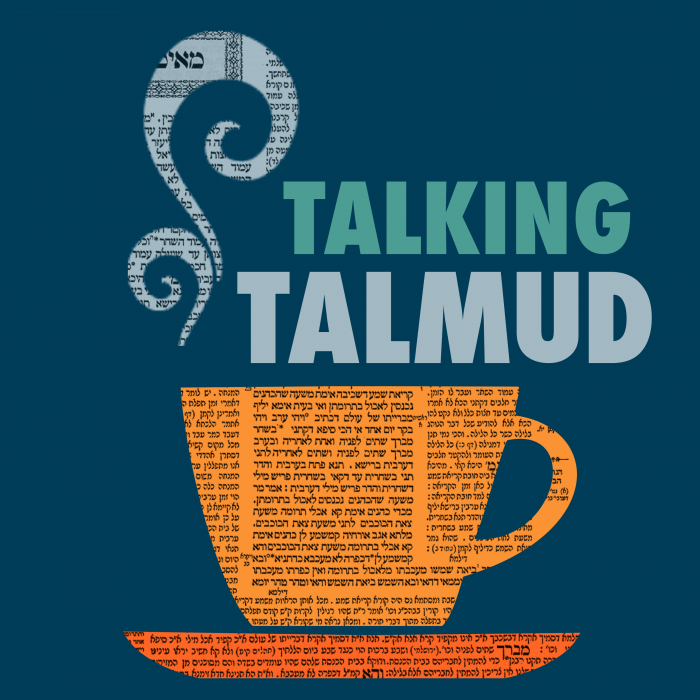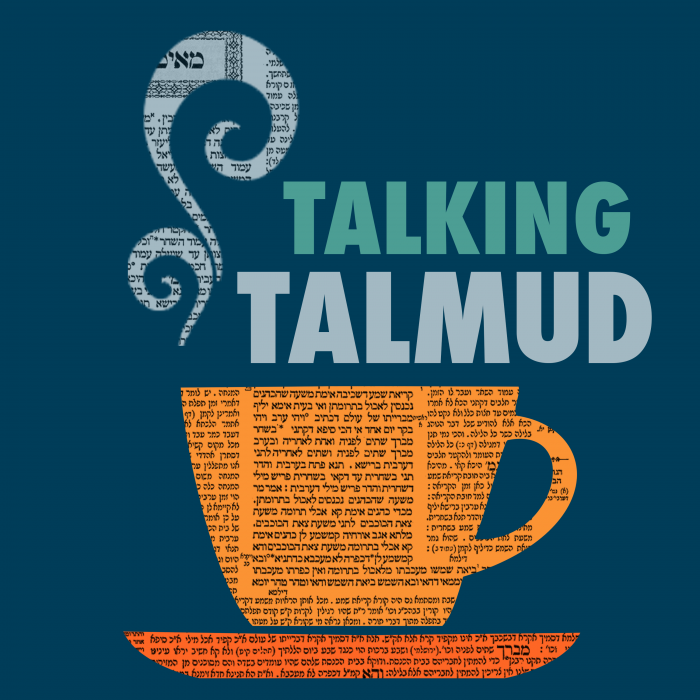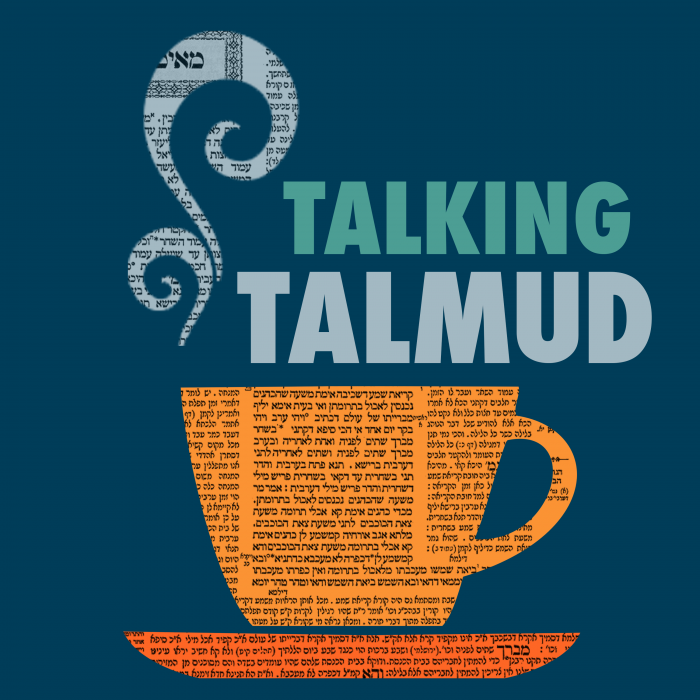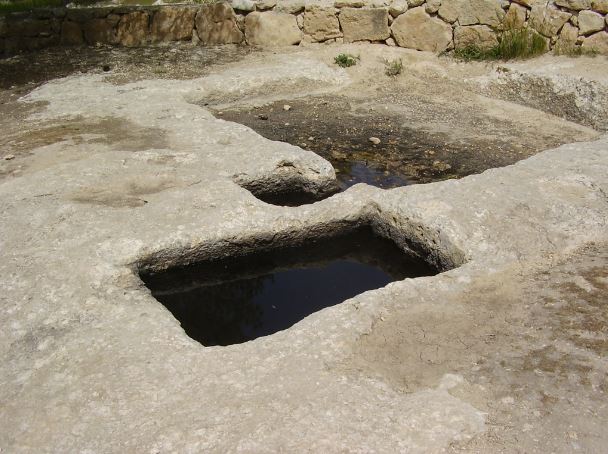Pesachim 111
חוּץ מִן הַמַּיִם. וְרַבִּי יוֹחָנָן אָמַר: אֲפִילּוּ מַיִם. אָמַר רַב פָּפָּא: לָא אֲמַרַן, אֶלָּא חַמִּימֵי לְגוֹ קָרִירֵי, וְקָרִירֵי לְגוֹ חַמִּימֵי. אֲבָל חַמִּימֵי לְגוֹ חַמִּימֵי, וְקָרִירֵי לְגוֹ קָרִירֵי — לָא.
except for water. If one mixes water with other water, it is not considered diluted and does not count toward the number of cups. And Rabbi Yoḥanan said: Even water joins the number of cups. Rav Pappa said: We said this statement only about hot water poured into cold water, and cold water poured into hot water. Rabbi Yoḥanan maintains that these cups are considered diluted. However, everyone agrees that hot water poured into hot water or cold water poured into cold water, no, they are not considered diluted.
אָמַר רֵישׁ לָקִישׁ: אַרְבָּעָה דְּבָרִים הָעוֹשֶׂה אוֹתָן דָּמוֹ בְּרֹאשׁוֹ וּמִתְחַיֵּיב בְּנַפְשׁוֹ. אֵלּוּ הֵן: הַנִּפְנֶה בֵּין דֶּקֶל לְכוֹתֶל, וְהָעוֹבֵר בֵּין שְׁנֵי דְקָלִים, וְהַשּׁוֹתֶה מַיִם שְׁאוּלִין, וְהָעוֹבֵר עַל מַיִם שְׁפוּכִין, וַאֲפִילּוּ שְׁפָכַתּוּ אִשְׁתּוֹ בְּפָנָיו.
The Gemara cites more statements concerning superstitions and witchcraft. Reish Lakish said: There are four matters. The one who performs them, his blood is upon his own head, and he is held liable for his own life, due to the evil spirit that rests upon him: One who relieves himself in a spot between a palm tree and a wall, one who passes between two palm trees, one who drinks borrowed water, and one who passes over spilled water, even if his wife poured it out in front of him.
הַנִּפְנֶה בֵּין דֶּקֶל לְכוֹתֶל — לָא אֲמַרַן אֶלָּא דְּלֵית לֵיהּ אַרְבַּע אַמּוֹת, אֲבָל אִית לֵיהּ אַרְבַּע אַמּוֹת — לֵית לַן בַּהּ. וְכִי לֵית לֵיהּ אַרְבַּע אַמּוֹת, לָא אֲמַרַן אֶלָּא דְּלֵיכָּא דִּירְכָּא אַחֲרִינָא, אֲבָל אִיכָּא דִּירְכָּא אַחֲרִינָא — לֵית לַן בַּהּ.
The Gemara elaborates: With regard to one who relieves himself between a palm tree and a wall, we said that he places himself in danger only when there are not four cubits of space between the two objects. However, if there are four cubits, we have no problem with it. The demons have enough room to pass, and he will not obstruct them. And furthermore, even when there are not four cubits, we said there is a problem only when the demons have no other route besides that one. However, if they have another route, we have no problem with it.
וְהָעוֹבֵר בֵּין שְׁנֵי דְקָלִים — לָא אֲמַרַן אֶלָּא דְּלָא פַּסְקִינְהוּ רְשׁוּת הָרַבִּים, אֲבָל פַּסְקִינְהוּ רְשׁוּת הָרַבִּים — לֵית לַן בַּהּ. הַשּׁוֹתֶה מַיִם שְׁאוּלִין — לָא אֲמַרַן אֶלָּא דְּשַׁיְילִינְהוּ קָטָן, אֲבָל גָּדוֹל — לֵית לַן בַּהּ.
And with regard to one who passes between two palm trees, we said that he is in danger only if a public domain does not cross between them. However, if a public domain crosses between them, we have no problem with it, as demons are not permitted to cause harm in a public place. And with regard to one who drinks borrowed water, we said it is dangerous only if a minor borrowed it. However, if an adult borrowed the water, we have no problem with it.
וַאֲפִילּוּ שַׁיְילִינְהוּ קָטָן נָמֵי — לָא אֲמַרַן אֶלָּא בַּשָּׂדֶה, דְּלָא שְׁכִיחִי, אֲבָל בָּעִיר, דִּשְׁכִיחִי — לֵית לַן בָּהּ. וַאֲפִילּוּ בַּשָּׂדֶה נָמֵי — לָא אֲמַרַן אֶלָּא מַיָּא, אֲבָל חַמְרָא וְשִׁיכְרָא — לֵית לַן בַּהּ.
And even if a minor borrowed it, we said this poses a danger only if it occurred in a field, where water is not found. However, in a city, where water can be found, we have no problem with it. And even in a field, we said there is cause for concern only in a case of borrowed water; however, with regard to wine and beer, we have no problem with it.
וְהָעוֹבֵר עַל מַיִם שְׁפוּכִין — לָא אֲמַרַן אֶלָּא דְּלָא אַפְסְקִינְהוּ בְּעַפְרָא וְלָא תַּף בְּהוּ רוּקָּא, אֲבָל אַפְסְקִינְהוּ אוֹ תַּף בְּהוּ רוּקָּא — לֵית לַן בַּהּ. וְלָא אֲמַרַן אֶלָּא דְּלָא עֲבַר עֲלַיְיהוּ שִׁימְשָׁא וְלָא עֲבַר עֲלַיְיהוּ שִׁיתִּין נִיגְרֵי, אֲבָל עֲבַר עֲלַיְיהוּ שִׁימְשָׁא וַעֲבַר עֲלַיְיהוּ שִׁיתִּין נִיגְרֵי — לֵית לַן בַּהּ. וְלָא אֲמַרַן אֶלָּא דְּלָא רְכִיב חֲמָרָא וְלָא סָיֵים מְסָנֵי, אֲבָל רְכִיב חֲמָרָא וְסָיֵים מְסָנֵי — לֵית לַן בַּהּ.
And with regard to one who passes over spilled water, we said he places himself in danger only if no one sprinkled dirt over it and no one spat in it. However, if someone sprinkled dirt over it or spat in it, we have no problem with it. And we said this is a concern only if the sun did not pass over it, i.e., it occurred at night, and sixty steps of people walking in the area have not passed over it. However, if the sun passed over it and sixty steps passed over it, we have no problem with it. And we said this concern only if he was not riding a donkey and not wearing shoes; however, if he was riding a donkey and wearing shoes, we have no problem with it.
וְהָנֵי מִילֵּי הֵיכָא דְּלֵיכָּא לְמֵיחַשׁ לִכְשָׁפִים, אֲבָל הֵיכָא דְּאִיכָּא לְמֵיחַשׁ לִכְשָׁפִים, אַף עַל גַּב דְּאִיכָּא כׇּל הָנֵי — חָיְישִׁינַן. (וְהָהוּא) גַּבְרָא דִּרְכִיב חֲמָרָא וְסָיֵים מְסָנֵי, וּגְמוּד מְסָאנֵיהּ וּצְווֹ כַּרְעֵיהּ.
The Gemara comments: And all this applies only where there is no reason for concern for witchcraft, as no one is interested in harming him. However, where there is reason for concern for witchcraft, even if all of these limiting conditions are in place, we are nevertheless concerned. And this is similar to what happened to a certain man who was riding a donkey and wearing shoes. Nevertheless, he passed over water and his shoes shrank and his feet shriveled up.
תָּנוּ רַבָּנַן: שְׁלֹשָׁה אֵין מְמַצְּעִין וְלֹא מִתְמַצְּעִין. וְאֵלּוּ הֵן: הַכֶּלֶב וְהַדֶּקֶל וְהָאִשָּׁה. וְיֵשׁ אוֹמְרִים: אַף הַחֲזִיר, וְיֵשׁ אוֹמְרִים: אַף הַנָּחָשׁ.
The Gemara continues to discuss this issue. The Sages taught: Three objects should not be allowed to pass between two people walking along a road, and people should not walk between two of them: A dog, a palm tree, and a woman. And some say: Also a pig. And some say: Also a snake. All of these were associated with witchcraft.
וְאִי מְמַצְּעִין מַאי תַּקַּנְתֵּיהּ? אָמַר רַב פָּפָּא: נִפְתַּח בְּ״אֵל״ וְנַפְסֵיק בְּ״אֵל״.
The Gemara asks: And if they pass between them, what is the remedy to prevent one from harm? Rav Pappa said: He should begin reciting a verse that starts with the word God and conclude with a verse that ends with the word God. In other words, he should recite the passage: “God Who brought them out of Egypt is for them like the lofty horns of the wild ox. For there is no enchantment with Jacob, nor is there any divination with Israel; now is it said of Jacob and of Israel: What has been performed by God” (Numbers 23:22–23). This verse indicates that spells do not affect the Jewish people.
אִי נָמֵי, נִפְתַּח בְּ״לֹא״ וְנַפְסֵיק בְּ״לֹא״.
Alternatively, he should open with a verse that begins with the word lo, no, and should conclude with the same verse that ends with lo: “No [lo] man is God that he should lie; neither the son of man that he should repent. When He has said will He not do it, or when He has spoken will He not [lo] make it good?” (Numbers 23:19).
הָנֵי בֵּי תְרֵי דְּמַצַּעָא לְהוּ אִשָּׁה נִדָּה, אִם תְּחִלַּת נִדָּתָהּ הִיא — הוֹרֶגֶת אֶחָד מֵהֶן, אִם סוֹף נִדָּתָהּ הִיא — מְרִיבָה עוֹשָׂה בֵּינֵיהֶן. מַאי תַּקַּנְתֵּיהּ? נִפְתַּח בְּ״אֵל״ וְנַפְסֵיק בְּ״אֵל״.
Similarly, these two men, between whom a menstruating woman passes, if she is at the beginning of her menstruation she kills one of them, i.e., she causes the death of one of the two men. If she is at the end of her menstruation she does not kill, but she causes a fight between them. What is his remedy? He should open with a verse that begins with the word God and he should conclude with a verse that ends with the word God, as explained above.
הָנֵי תְּרֵי נְשֵׁי דְּיָתְבָן בְּפָרָשַׁת דְּרָכִים, חֲדָא בְּהַאי גִּיסָא דִּשְׁבִילָא, וַחֲדָא בְּאִידַּךְ גִּיסָא, וּמְכַוְּונָן אַפַּיְיהוּ לַהֲדָדֵי — וַדַּאי בִּכְשָׁפִים עֲסִיקָן. מַאי תַּקַּנְתֵּיהּ? אִי אִיכָּא דִּירְכָּא אַחֲרִינָא — לֵיזִיל בַּהּ. וְאִי לֵיכָּא דִּירְכָּא אַחֲרִינָא, אִי אִיכָּא אִינִישׁ אַחֲרִינָא בַּהֲדֵיהּ — נִינְקְטוֹ לִידַיְיהוּ בַּהֲדֵי הֲדָדֵי וְנִיחַלְּפוּ. וְאִי לֵיכָּא אִינִישׁ אַחֲרִינָא, נֵימָא הָכִי: ״אָגְרַת אָזְלַת אָסְיָא בְּלוּסְיָא, מִתְקַטְלָא בְּחֵיק קָבָל״.
The Gemara further states: These two women, who are sitting at a crossroads, one on this side of the road and the other on the other side, and they are facing each other, they are certainly engaging in witchcraft. What is the remedy for one who walks by? If there is another route, he should go by it. And if there is no other route, if there is another person with him, they should hold hands and switch places. And if there is no other person with him, he should say as follows: Iggeret, Azlat, Asiya, Belusiya are killed by arrows. These are names of demons invoked by witches.
הַאי מַאן דְּפָגַע בְּאִיתְּתָא בְּעִידָּנָא דְּסָלְקָא מִטְּבִילַת מִצְוָה, אִי אִיהוּ קָדֵים וּמְשַׁמֵּשׁ — אָחֲדָא לֵיהּ לְדִידֵיהּ רוּחַ זְנוּנִים. אִי אִיהִי קָדְמָה וּמְשַׁמְּשָׁה — אָחֲדָא לַהּ לְדִידַהּ רוּחַ זְנוּנִים. מַאי תַּקַּנְתֵּיהּ? לֵימָא הָכִי: ״שׁוֹפֵךְ בּוּז עַל נְדִיבִים וַיַּתְעֵם בְּתוֹהוּ לֹא דָרֶךְ״.
The Gemara cites a related statement: One who meets a woman when she is ascending from the ritual immersion of a mitzva, after her menstruation, if he has intercourse with any woman first, a spirit of immorality overtakes him; if she has intercourse first, a spirit of immorality overtakes her. What is his remedy? He should say this: “He pours contempt upon princes, and causes them to wander in the waste, where there is no way” (Psalms 107:40).
אָמַר רַבִּי יִצְחָק, מַאי דִּכְתִיב: ״גַּם כִּי אֵלֵךְ בְּגֵיא צַלְמָוֶת לֹא אִירָא רָע כִּי אַתָּה עִמָּדִי״ — זֶה הַיָּשֵׁן בְּצֵל דֶּקֶל יְחִידִי, וּבְצֵל לְבָנָה. וּבְצֵל דֶּקֶל יְחִידִי — לָא אֲמַרַן אֶלָּא דְּלָא נָפֵיל טוּלָּא דְחַבְרֵיהּ עִילָּוֵיהּ, אֲבָל נָפֵל טוּלָּא דְחַבְרֵיהּ עִילָּוֵיהּ — לֵית לַן בַּהּ.
Rav Yitzḥak said: What is the meaning of that which is written: “Though I walk through the valley of the shadow of death, I will fear no evil, for You are with me” (Psalms 23:4)? This is a person who sleeps in the shadow of a single palm tree, and in the shadow of the moon. Despite his dangerous position, he trusts God and is not afraid. The Gemara qualifies the previous statement: And with regard to one who sleeps in the shadow of a single palm tree, we said he is in danger only if the shadow of another palm tree does not fall upon him. However, if the shadow of another palm tree falls upon him, we have no problem with it.
אֶלָּא הָא דְּתַנְיָא: הַיָּשֵׁן בְּצֵל דֶּקֶל יְחִידִי בֶּחָצֵר, וְהַיָּשֵׁן בְּצֵל לְבָנָה — דָּמוֹ בְּרֹאשׁוֹ, הֵיכִי דָמֵי? אִי לֵימָא דְּלָא נָפֵל טוּלָּא דְּחַבְרֵיהּ עִילָּוֵיהּ, אֲפִילּוּ בַּשָּׂדֶה נָמֵי! אֶלָּא לָאו שְׁמַע מִינַּהּ: בְּחָצֵר אַף עַל גַּב דְּנָפֵיל טוּלָּא דְּחַבְרֵיהּ עִילָּוֵיהּ. שְׁמַע מִינַּהּ.
The Gemara asks: But what about that which was taught in a baraita: With regard to one who sleeps in the shadow of a single palm tree in a courtyard and one who sleeps in the shadow of the moon, his blood is upon his own head. What are the circumstances? If we say that the shadow of another palm tree does not fall on him, he would also be harmed if he were in a field. Rather, must one not conclude from this baraita that if one is in a courtyard, even if the shadow of another tree fell on him, it remains dangerous? The Gemara concludes: Indeed, learn from it that this is so.
וּבְצִילָּהּ שֶׁל לְבָנָה — לָא אֲמַרַן אֶלָּא בְּמַעְרְבָה, אֲבָל בְּמַדִּינְחֲתָא — לֵית לַן בַּהּ.
The Gemara adds: And with regard to the shadow of the moon, we said it is dangerous to sleep there only at the end of the month when the moon shines in the east, and therefore its shadow is in the west. However, at the start of the month, when the moon shines in the west and its shadow is in the east, we have no problem with it.
הַאי מַאן דְּמִפְּנֵי אַגִּירְדָּא דְּדִיקְלָא — אָחֲדָא לֵיהּ לְדִידֵיהּ רוּחַ פַּלְגָא. וְהַאי מַאן דְּמַצְלֵי רֵישֵׁיהּ אַגִּירְדָּא דְּדִיקְלָא — אָחֲדָא לֵיהּ רוּחַ צְרָדָא. הַאי מַאן דְּפָסְעִי אַדִּיקְלָא, אִי מִיקְּטַל — קְטִיל, אִי אִיעֲקַר — מִיעֲקַר וּמָיֵית. הָנֵי מִילֵּי דְּלָא מַנַּח כַּרְעֵיהּ עִילָּוֵיהּ, אֲבָל מַנַּח כַּרְעֵיהּ — עִילָּוֵיהּ לֵית לַן בַּהּ.
The Gemara continues to discuss harmful spirits. One who relieves himself on the stump of a palm tree will be seized by a spirit of sickness, and one who places his head on the stump of a palm tree will be seized by a spirit of a headache of half his head, i.e., a migraine. One who walks over a palm tree, if the tree is cut down, he too will be killed. If that tree is uprooted, he will also be uprooted and will die. The Gemara comments: This statement applies only if he does not place his legs upon it; however, if he places his legs upon it, we have no problem with it.
חֲמִשָּׁה טוּלֵּי הָוֵי: טוּלָּא דְּדִיקְלָא יְחִידָא, טוּלָּא דְכִנָּדָא, טוּלָּא דְפִרְחָא, טוּלָּא דְזַרְדְּתָא. אִיכָּא דְּאָמְרִי: אַף טוּלָּא דְאַרְבָּא, וְטוּלָּא דַעֲרַבְתָּא. כְּלָלָא דְּמִילְּתָא: כֹּל דִּנְפִישׁ עַנְפֵיהּ — קְשֵׁי טוּלֵּיהּ,
The Gemara cites another statement with regard to shadows. There are five types of dangerous shadows: The shadow of a single palm tree, the shadow of a tree called kanda, the shadow of a caper-bush, and the shadow of the sorb tree. Some say: Also the shadow of a ship and the shadow of a willow. The general rule of the matter is: Whatever has many branches, its shadow is dangerous.
וְכֹל דִּקְשֵׁי סִילְוֵיהּ — קְשֵׁי טוּלֵּיהּ, לְבַר מִכְּרוּ מְשָׁא, אַף עַל גַּב דִּקְשֵׁי סִילְוֵיהּ — לָא קְשֵׁי טוּלֵּיהּ, דַּאֲמַרָה לֵהּ שֵׁידָא לִבְרַהּ: פִּירְחִי נַפְשָׁיךְ מִכְּרוּ מְשָׁא, דְּאִיהוּ הוּא דְּקָטֵיל לַאֲבוּךְ, וְקָטֵיל לְדִידֵיהּ. אָמַר רַב אָשֵׁי: חֲזֵינָא לְרַב כָּהֲנָא דְּפָרֵישׁ מִכּוּלְּהוּ טוּלֵּי.
And any tree whose wood is hard, its shadow is dangerous, except for the tree called kero masa. Although its wood is hard, its shadow is not dangerous, as the demon said to her son: Leave the kero masa tree alone, as it was that tree that killed your father. And the tree later killed the son too. The kero masa tree is harmful to demons. Rav Ashi said: I saw that Rav Kahana avoided all types of shadows.
בֵּי פִרְחֵי — רוּחֵי. דְּבֵי זַרְדְּתָא — שֵׁידָא. דְּבֵי אִיגָּרֵי — רִישְׁפֵּי. לְמַאי נָפְקָא מִינַּהּ? לִקְמִיעָא.
The Gemara comments: The demons near the caper-bush are called ruḥei. A demon found near the sorb trees is called shida. The demons found on roofs are called rishfei. The Gemara asks: What is the practical difference of these definitions? It makes a difference for writing an amulet on behalf of one who has been harmed. It is necessary to know the name of the demon who caused the damage.
דְּבֵי פִרְחֵי — בְּרִיָּה שֶׁאֵין לָהּ עֵינַיִם. לְמַאי נָפְקָא מִינַּהּ — לְגַזּוֹזֵי לַהּ. זִימְנָא חֲדָא הֲוָה אָזֵיל צוּרְבָּא מֵרַבָּנַן לְאִפְּנוֹיֵי לְבֵי פִרְחֵי, שְׁמַע דְּקָא אָתָא עִילָּוֵיהּ, וְגַזִּי לַהּ. כִּי אָזְלָא, חַבְּקַיהּ לְדִיקְלָא — צְוַוח דִּיקְלָא וּפְקַעָה הִיא.
The Gemara further comments: The demon found near the caper-bush is a creature with no eyes. What is the practical halakhic difference of this observation? It is relevant with regard to fleeing from it. The Gemara relates: Once a Torah scholar went to relieve himself near a caper-bush. He heard the demon coming and fled from it. When this evil spirit went, it grabbed a palm tree and got stuck there. The palm tree dried out and the demon burst.
פִּרְחָא דְּבֵי זַרְדְּתָא — שֵׁידֵי. הָא זַרְדְּתָא דִּסְמִיכָה לְמָתָא — לָא פָּחֲתָא מִשִּׁיתִּין שֵׁידֵי. לְמַאי נָפְקָא מִינַּהּ? לְמִיכְתַּב לַהּ קְמִיעָא.
It was stated above that the demons found near the sorb tree are called sheidei. The Gemara comments: This sorb tree that is close to the city contains no less than sixty demons. The Gemara asks: What is the practical difference of this statement? The Gemara answers: It is relevant for writing an amulet for this number.
הָהוּא בַּר קַשָּׁא דְּמָתָא דְּאָזֵיל וְקָאֵי גַּבֵּי זַרְדְּתָא, דַּהֲוָה סְמִיךְ לְמָתָא, עַלּוּ בֵּיהּ שִׁיתִּין שֵׁידֵי וְאִיסְתַּכַּן. אֲתָא לְהָהוּא מֵרַבָּנַן דְּלָא יְדַע דְּזַרְדְּתָא דְּשִׁיתִּין שֵׁידֵי הִיא, כְּתַב לַהּ קְמִיעַ לַחֲדָא שֵׁידָא. שְׁמַע דְּתָלוּ חִינְגָּא בְּגַוֵּויהּ, וְקָא מְשָׁרוּ הָכִי: סוּדָרֵיהּ דְּמָר כִּי צוּרְבָּא מֵרַבָּנַן, בָּדֵיקְנָא בֵּיהּ בְּמָר דְּלָא יָדַע ״בָּרוּךְ״. אֲתָא הָהוּא מֵרַבָּנַן דִּידַע דְּזַרְדְּתָא שִׁיתִּין שֵׁידֵי הֲוָה, כְּתַב לַהּ קְמִיעָא דְּשִׁיתִּין שֵׁידֵי, שְׁמַע דְּקָא אָמְרוּ: פַּנּוּ מָנַיְיכוּ מֵהָכָא.
The Gemara relates: A certain ruler of a city walked and stood by a sorb tree that was near a city. Sixty sheidei demons came upon him and he was in danger. One of the Sages who did not know that it was a sorb tree of sixty sheidei came and wrote him an amulet for one shida demon. That man heard that there was a celebration inside the tree, and the demons were singing: The scarf of the Master is like that of a Torah scholar, but we checked the Master and he does not know how to say barukh, the blessing when donning a scarf. The demons were mocking him and saying that he did not know how to write an amulet. Another one of the Sages, who knew that it was a sorb tree of sixty sheidei, came and wrote an amulet against sixty demons. He heard them saying: Clear your items away from here.
קֶטֶב מְרִירִי — תְּרֵי קִטְבֵי הָווּ. חַד מִקַּמֵּי טִיהֲרָא, וְחַד מִבָּתַר טִיהֲרָא. דְּמִקַּמֵּי טִיהֲרָא — ״קֶטֶב מְרִירִי״ שְׁמוֹ, וּמִיחֲזֵי בֵּי כַדָּא דְּכַמְכָּא וְהָדַר בֵּיהּ בַּחְשָׁא. דְּבָתַר טִיהֲרָא — ״קֶטֶב יָשׁוּד צׇהֳרָיִם״ שְׁמוֹ, וּמִיחֲזֵי בֵּי קַרְנָא דְּעִיזָּא, וְהָדַר בֵּיהּ כְּנָפְיָא.
The Gemara discusses the ketev meriri, a demon mentioned in the Torah (Deuteronomy 32:24). There are two types of ketev demons, one that comes before noon in the morning and the other one comes in the afternoon. The one that comes before noon is called ketev meriri, and it appears in a jug of kutaḥ, a Babylonian spice, and continuously revolves around inside it. The ketev in the afternoon is called ketev yashud tzaharayim (Psalms 91:6), and it appears inside the horn of a goat and revolves around inside it like a sifter.
אַבָּיֵי הֲוָה שָׁקֵיל וְאָזֵיל, וְאָזֵיל רַב פָּפָּא מִיַּמִּינֵיהּ וְרַב הוּנָא בְּרֵיהּ דְּרַב יְהוֹשֻׁעַ מִשְּׂמָאלֵיהּ. חַזְיֵיהּ לְהָהוּא קֶטֶב מְרִירִי דְּקָא אָתֵי לְאַפֵּיהּ דִּשְׂמָאלֵיהּ. אַהְדְּרֵא לְרַב פָּפָּא לִשְׂמָאלֵיהּ, וּלְרַב הוּנָא בְּרֵיהּ דְּרַב יְהוֹשֻׁעַ לְיַמִּינֵיהּ. אֲמַר לֵיהּ רַב פָּפָּא: אֲנָא מַאי שְׁנָא דְּלָא חָשֵׁשׁ לִי? אֲמַר לֵיהּ: אַתְּ שַׁעְתָּא קָיְימָא לָךְ.
The Gemara relates: Abaye was coming and walking along the street. And Rav Pappa was walking on his right and Rav Huna, son of Rav Yehoshua, was on his left. Abaye saw a certain ketev meriri coming on his left side and he switched Rav Pappa to his left and Rav Huna, son of Rav Yehoshua, to his right. Rav Pappa said to Abaye: And I, what is different that you were not concerned about any possible harm to me? Abaye said to him: The time is in your favor. You are wealthy and fortunate, and therefore I believe that you will most likely not be harmed by the demon.
מֵחַד בְּתַמּוּז עַד שִׁיתְּסַר בֵּיהּ — וַדַּאי שְׁכִיחִי. מִכָּאן וְאֵילָךְ — סָפֵק שְׁכִיחִי, סָפֵק לָא שְׁכִיחִי. וּמִשְׁתַּכְחִי בְּטוּלֵּי דְּחַצְבָּא דְּלָא חֲצַב גַּרְמִידָא, וּבְטוּלֵּי דְּצַפְרָא וּפַנְיָא דְּלָא הָוֵי גַּרְמִידָא, וְעִיקָּר בְּטוּלֵּי דְּבֵית הַכִּסֵּא.
The Gemara comments: From the first of Tammuz to the sixteenth of that month, these demons are certainly found. From here onward it is uncertain whether they are found or whether they are not found. And they can be found in the shadow of a sea squill that has not grown a cubit, and in the shadow of objects in the morning and evening when their length is less than a cubit. And they are mostly found in the shadow of a privy.
אָמַר רַב יוֹסֵף: הָנֵי תְּלָת מִילֵּי יָהֵיב אַרְבּוֹנָא לִנְהוֹרָא: מַן דְּסָרֵיק רֵישֵׁיהּ יַבִּשׁ, וּמַן דְּשָׁתֵי טִיף טִיף, וּמַן דְּסָיֵים מְסָנֵי אַדְּמִייתִנְיָה כַּרְעָא.
Rav Yosef said: These three matters cause blindness to the light of one’s eyes: One who combs his hair when it is dry, one who drinks wine that is dripping from the barrel, and one who puts on shoes when his feet are wet after being washed.
תְּלַאי בְּבֵיתָא קְשֵׁי לְעַנְיוּתָא. כִּדְאָמְרִי אִינָשֵׁי: תְּלָא סִילְתָּא — תְּלָא מְזוֹנֵיהּ. וְלָא אֲמַרַן אֶלָּא רִיפְתָּא, אֲבָל בִּישְׂרָא וְכַוְורֵי — לֵית לַן בַּהּ, אוֹרְחֵיהּ הִיא. פָּארֵי בְּבֵיתָא — קְשֵׁי לְעַנְיוּתָא. נִשְׁוָרָא בְּבֵיתָא — קְשֵׁי לְעַנְיוּתָא. בְּלֵילֵי שַׁבָּתוֹת וּבְלֵילֵי רְבִיעִית — שָׁרוּ מַזִּיקִין עִילָּוֵיהּ.
If a food is hanging in one’s house, it causes poverty. This is as people say in a popular proverb: He who hangs the basket hangs his sustenance, i.e., he loses it. And we said this only about hanging bread; however, if one hangs meat and fish, we have no problem with it. The reason is that it is the common practice to hang meat and fish. Bran [parei] in the house causes poverty. Bread crumbs in the house cause poverty. If these crumbs are spread throughout the house on Shabbat nights, i.e., Friday nights, or on Tuesday nights, when demons are present, harmful spirits rest on them.
אִיסָּרָא דִמְזוֹנֵי ״נְקִיד״ שְׁמֵיהּ. אִיסָּרָא דְעַנְיוּתָא ״נָבָל״ שְׁמֵיהּ. צָעָא אַפּוּמָּא דְחַצְבָּא — קְשֵׁי לְעַנְיוּתָא. מַאן דְּשָׁתֵי מַיָּא בְּצָעֵי — קְשֵׁי לִבְרוּקְתִּי. דְּאָכֵיל תַּחְלֵי וְלָא מָשֵׁי יְדֵיהּ — מְפַחֵיד תְּלָתִין יוֹמִין.
The administering angel appointed over food is called Nakid, i.e., he is clean [naki] and particular about cleanliness. The administering angel appointed over poverty is called Naval. The angel appointed over food will not stay in a dirty place, while the angel appointed over poverty will thrive there. A plate placed on a jug causes poverty. One who drinks water from a plate causes eye pain. One who eats cress without washing his hands will be afraid for thirty days.



